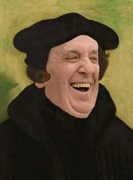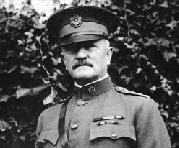|
Lutha Mahtin posted:does anybody disagree with me that maybe we can hold off on the demon stuff until we get all people food, medical care, and a safe place to live? i hold this opinion because otherwise I feel like even talking about someone being possessed is far too easily abused by people with power and agendas this reminds me of an article aloysius pieris wrote about an exorcism by buddhists in sri lanka that he attended and i cannot remember a lot of his points other than "it was more about using the exorcism as an opportunity to call out people harming members of their community" and i'd link it but APPARENTLY it no longer is online (thanks, east asian pastoral review and your constant website revisions making it impossible to find anything even six months later) but it makes me think that maybe it doesn't have to be an either/or thing maybe people should talk about mammon and his influence as being more literal and less figurative and call for exorcism of actual loving vampires in america using the blood of teenagers to keep themselves young and the supervillain level evil people motivated by greed, and hold that part of that exorcism is them relinquishing the power that let the demons influence them edit: ah wonderful, eapr. http://www.eapi.org.ph/resources/eapr/east-asian-pastoral-review-1995/prophetic-humour-and-the-exposure-of-the-demons remove the full text of the article, BRILLIANT. how a website can look better ten years later but be less functional i will never understand
|
|
|
|

|
| # ? Jun 11, 2024 19:52 |
|
Who is the patron saint of work disputes / dealing with corrupt authority / exploitative bosses
|
|
|
|
saint deez?
|
|
|
|
Pellisworth posted:Who is the patron saint of work disputes / dealing with corrupt authority / exploitative bosses Maybe St. Joseph the Worker?
|
|
|
|
Epicurius posted:But some wisdom from Fr. Chad about "Generational spirits" looks like ecumenicism really is the font of all heresies Thirteen Orphans posted:In many non-Western cultures, the experience of the human person in a spiritual world means that the influence of spirits, demonic or otherwise, is an extremely important part of their worldview, even effecting their everyday life. HEY GUNS fucked around with this message at 11:45 on Sep 13, 2018 |
|
|
|
Pellisworth posted:Who is the patron saint of work disputes / dealing with corrupt authority / exploitative bosses Getchu some Jesus
|
|
|
|
HEY GUNS posted:are not the orthodox western? I personally find that kind of an interesting question, since Orthodoxy's strongholds are in areas traditionally thought of as the boundary line between east and west. And I think most Protestants are barely aware that Orthodoxy exists unless they're in an immigrant (specifically Greek, Russian, or southeast Europe) heavy area. https://i.imgur.com/Dc4Iiqg.mp4
|
|
|
|
Thirteen Orphans posted:You familiar with Fr. John Corapi? The first time my mother saw him on EWTN she immediately said, "I don't trust that man, at all." Absolutely the same reaction. I felt awful because my uncle was so enthusiastic about him and I took a look at his recommendation and all the internal red flags started going up.
|
|
|
|
On the topic of exorcists. There's this BBC 3 documentary about an Argentinian Lutheran exorcist. Of course, it's hard to say he's Lutheran just by looking at him, because he wants everything to look super 'Catholic' (as in like in the movie Exorcist, he even plays music from the movie). He's also proclaimed himself a bishop, I guess... https://www.youtube.com/watch?v=l78hW8qVIWI The documentary is kind of meh, and the presenter is trying too hard to be like young Louis Theroux, but that exorcist is an interesting character.
|
|
|
|
Cythereal posted:I personally find that kind of an interesting question, since Orthodoxy's strongholds are in areas traditionally thought of as the boundary line between east and west. central europe owns as hell but yeah, it is an interesting question. You could also ask if the Ottomans are Western.
|
|
|
|
System Metternich posted:Do ut des?
|
|
|
|
I FEEL ATTACKED BY THIS RELATABLE CONTENT
|
|
|
|
HEY GUNS posted:are not the orthodox western? I should have just said “Afro-Caribbean” culture because that’s who I wanted to talk about.
|
|
|
|
Is it actually possible I've known about Hyperdox Herman longer than Hegel? https://twitter.com/NostromoSerg/status/1040398864057028608 https://twitter.com/NostromoSerg/status/1040398975524909057
|
|
|
|
Lord Jesus, embrace these memes and those who identify with it.
|
|
|
|
My inquisitor/horror medieval RPG writing is proceeding on track, and since my characters are all or nearly all going to be catholics, I'd like to ask you this: What is it like to be a practicing christian in the early-middle 1200s? Protestantism hasn't rolled around yet, but what do you think about your faith, and how do you do it in this period?
|
|
|
|
Tias posted:My inquisitor/horror medieval RPG writing is proceeding on track, and since my characters are all or nearly all going to be catholics, I'd like to ask you this: That's a good question, but hard to answer: it depends a lot on where the characters would come from. There was a lot of difference between, say, an urban Christian who grew up in the shadow of the Sorbonne in Paris, a peasant in the Alps who spent many a night reciting prayers to forgotten Gods under a Christian guise while horrible thunderstorms raged outside of his hut, or a Sicilian lord who regularly converses with his Muslim neighbours about learned things. That said (and also while noting that I am not a medievalist historian, so please correct me if I get anything wrong), there were some things that characterised most or even all of European history throughout the 13th century. This was the time where Europe, by the way of crusaders, missionaries and merchants, really started to explore the world outside of its own bounds. It is no coincidence that many of the Middle Ages' greatest world maps like those of Ebstorf and Hereford were created during that time. This is also the time where Western Christendom really started to have non-violent contact with non-Christians, especially in Southern Italy and Spain. The Sacking of Constantinople also contributed greatly to a certain fascination with the East, especially in learned circles, while the war against the Mongols made it clear to Europeans that there was a whole lot about Asia they didn't yet know, and that the ancient Roman and Greek accounts didn't suffice to describe the world anymore (William of Rubruck was one of the first Europeans to travel through Asia in the 1250s, all the way to Karakorum). Finally during this time the first large-scale resistance movements against Roman Catholicism since the demise of Arianism emerged, in the form of Albigensians and Cathars. The Fourth Lateran Council noted that in many parts of Europe, Christians, Jews and even Muslims were living side by side. The council fathers admonished against too much contact with non-Christians and ordered them to wear different clothing, so that they could easily be distinguished from their Christian neighbours. Some historians see this as the beginning of a "persecuting society". Socially, the 13th century was marked by strong urbanisation. Hundreds of cities and towns were started all over Europe, and great numbers of rural poor moved into them. Merchants grew rapidly in importance, and the Italians did a lot in laying the foundations for modern banking. In Western Europe, the road network had grown dense and safe enough that merchants didn't need to travel themselves anymore, but were able to send representatives along with their wares. This is why the 13th and 14th centuries are sometimes labelled as the time of the "commercial revolution", because this is the first time during the European Middle Ages where we really start to see substantial "indirect" trade, where merchants in cities that were far apart could trade without ever seeing each other face to face. Social tensions grew as well, strengthened by the development of large urban underclasses and the emergence of a sort of proto-bourgeoisie in the form of merchants, state officials (this is also a time where at least some kingdoms, notably that of France, really started to centralise and bureaucratise) and rich craftsmen with a lot of money and influence. The Hansa was influential in connecting merchant elites all over the North and the Baltic Seas, bringing Scandinavia and also Russia much closer to the rest of Europe. By the early 13th century the Baltics were still largely pagan, but Christian influence grew steadily, first via merchants and missionaries and from about 1250 on by the Teutonic Order which began to spreach Christianity by force. Concerning the Christian faith itself, the 13th century was also a time of great change and conflict. The experience of "opening up" to the wider world as well as increasing social tensions effected change withing the Church as well. As an answer to increasing urban poverty, mendicant orders like the Dominicans and Franciscans were formed and started to minister especially towards urban underclasses. The time around 1200 was also the height of papal supremacy during the Middle Ages; the popes would never again exert as much power over temporal lords as during that time. Correspondingly, the Church centralised more and more, with Roman standards of liturgy or music starting to replace local varieties. Along with the emerging cities, fraternities started to appear and spread, although they were mostly limited to members of a specific trade and in that sense represented the religious side of the emerging guild system. The institution of the university had firmly established itself in Europe, and as a consequence theology of the era was strongly influenced by it. Whereas in former times, theologians mostly used to be monastics, many scholars of the time now worked as professors at universities like in Paris, Oxford or Salamanca. The theology of the time was scholastic in nature, i.e. strongly influenced by logics and dialectics and the firm belief that by applying those to the matter at hand, it was perfectly possible to draw conclusions about the particular by starting at the general (the principle of deduction). The foremost representatives of 13th century scholastic theology were probably St Albertus Magnus and St Thomas Aquinas, both of them being members of the Dominican Order. On a more personal level, this was also a time that saw the reemergence of mysticism (and especially female mysticism) in the Catholic religion, driven especially by monastics. The unio mystica was the attempt to experience the divine on an immediate and highly personal level, and especially in the case of women mystics often also centered around the bodily effects of partaking in the Eucharist or even, in extension, the human body of Christ as well. Important representatives of 13th century mysticism were e.g. St Bonaventura and St Hildegard of Bingen. Another important part of Christian history during that time was the "poverty dispute", an argument within the Franciscans over the Christian ideal of poverty and the question over ecclesiastical wealth. The Joachimites, disciples of the teachings of the 12th century scholar Joachim of Fiore, were a millenarian group that believed in a tripartition of human history into three ages: The Age of the Father, the Age of the Son and the Age of the Holy Spirit, which would bring the Church back to its early Christian roots and either dial back or fully abolish ecclesiastical wealth and hierarchies and establish an essentially egalitarian society. Many believed that it would begin in about 1260, and they represented an important and especially zealous faction in the raging argument over the direction where the medieval church was heading (and, not too surprising, were suppressed heavily by official church authorities). Early forms of the rosary were spreading throughout Europe, as were Marian devotions. With the Christianisation of the European periphery came also sort of a "re-Christianisation" of its core, when many older forms of worship and even the occasional pagan substrate were modified or replaced by a larger, better structured and learned clergy. It is no coincidence that many of the ancient German sagas like the Nibelungenlied were first written down during that time, because the old practices and memories began to fade in an increasingly urbanised and interconnected world; writing them down prevented the stories from becoming forgotten. More details about personal religious practice are hard to give, because again they would be highly dependent on time, location and social group. A few generalities: By the 13th century the liturgy of the Mass was already undergoing a strong "clericalisation", excluding the laity from the chancel (also architecturally, i.e. by the erection of rood screens that prevented the people from looking at the altar) and reducing them from active to merely passive participants. Consumption of the Eucharist was rare; most laypeople during that time would probably only receive it once or twice a year. Eucharistic adoration was nevertheless on the rise, with special devotions and of course also the feast of Corpus Christi being introduced. Pilgrimages and devotions towards the saints and their relics were also on an unprecedented high (with crusades being seen as a form of armed pilgrimage). Although clergy tended to be better educated and organised than during previous centuries, many if not most of the lower clergy still had lamentably little idea of what they were expected to teach and do; as a consequence, anti-clericalism was a common sentiment especially amongst the rural poor who in contrast to the urban masses didn't have the luxury of choosing a priest, but were stuck with whomever had their parish. And although I wrote about the re-Christianisation of the European core, that didn't mean that "superstitious" or even "pagan" folkloric customs and practices died out. Belief in the supernatural was virtually everywhere, as was the belief in people being able to influence it via prayer and/or magic (the border between those two was and is really hard to determine, of course). In some southern French parishes, young men would dress up in horse costumes and dance around the local church for important feasts; in some parts of northern Italy it was established belief that at night, your spirit would leave your body and battle with evil demons intent on destroying your crops. If your priest preached at all, then his sermons would normally circle around the fear or damnation and the importance of repentance, which was mirrored by the strong and ever-rising belief in and theology of the purgatory. These were my two cents, anyway, I hope it is of some service to you and your campaign! 
System Metternich fucked around with this message at 12:06 on Sep 14, 2018 |
|
|
|
Very, thanks! The characters are either scandinavian or slavic civilians, or inquisitors, often with Frankic, German or Norse backgrounds.
|
|
|
|
would they have been to college? https://en.wikipedia.org/wiki/University_of_Bologna http://www.yourguidetoitaly.com/oldest-universities-of-italy.html they would have rented their books by the quire and possibly had them copied themselves. they would have lived in the same terrible apartments that university students live in now, and their drinking culture was a direct ancestor of what students do now. you make an announcement by posting it to message boards outside the church or by nailing them to the doors of the church--that's why Luther ailed his theses to the church door, it was to open up a discussion. They post classified ads there too. HEY GUNS fucked around with this message at 12:18 on Sep 14, 2018 |
|
|
|
Tias posted:My inquisitor/horror medieval RPG writing is proceeding on track, and since my characters are all or nearly all going to be catholics, I'd like to ask you this: I'm not a medievalist, but I always think of the thirteenth century as quite a cheerful, rational time, what with Aquinas studying Aristotle, and Hildegard of Bingen having visions of heavenly order. The polymaths of the period, like Bacon and Albertus Magnus, are working on the basis that the earth is divinely ordered, and the same patterns can be seen across alchemy, astrology, grammar, and human morality. Theology was seen as a science. Then the fourteenth century comes along, with Mongols and plagues and other bad stuff, and suddenly everyone is goth as heck. The thirteenth century is also interesting, in that you are seeing the emergence and spread of the features that we think of as distinctly Catholic, such as the Man of Sorrows iconography, the focus on holy wounds and the seven sorrows of Mary, the rosary, and the cult of the Virgin. Plus the reality of the Great Schism is really sinking in. People are getting more Catholic.
|
|
|
|
Tias posted:Very, thanks! The characters are either scandinavian or slavic civilians, or inquisitors, often with Frankic, German or Norse backgrounds. Hmm. I don't know a ot (or anything, really) about medieval eastern Europe, but I know that even though Christianisation of non-native Scandinavians was on paper pretty much finished by the 12th century, it was remarkably "light" for a long time, and pagan practices and memories managed to subsist for a long time. Apparently there is a 13th-century runestone from Bergen which still invoked the name of a Valkyrie! But otoh you probably know that better than I do  Re: the inquisition, your campaign's time period would be right in the middle of the institutionalisation and codifocation of the inquisition. What started as various localised efforts by bishops and their clergy to find effective means against the quick spread of Cathars, Waldensians and other heretical groups was mostly taken over by the Holy See from 1227 onwards (local inquisitions initiated by the bishop or temporal elites were still common afterwards and in some cases developed a life and a structure of their own fully independent of the Vatican, e.g. the Spanish inquisition). It is I think important to note that the inquisition didn't really exist as an overbearing institution and bureaucracy outside of southern France and northern Italy. There they had their own structure and hierarchy, complete with inquisitorial province, archives and staff, whereas in other parts of Europe like e.g. Germany "inquisition" meant a couple of dudes being tasked by the Pope to stamp out heresy in whatever way they deemed most fitting. This led naturally to a very haphazard and disjointed "inquisition", and it is very possible to have fanatical mass murderers like Konrad of Marburg on the one hand and other papal inquisitors who basically twiddled their thumbs and were all  ) as well as potential victims of them. There were plenty of assassinations and assassinations attempts against inquisitors, both by Cathars as well as others (Conrad of Marburg was murdered on the street by six men on horses after he started to go after nobles as well, for example). Sometimes the inquisition was big on rule of law, with a detailed set of rules for investigation, interrogation and court procedure (mainly in those areas where it was well organised and represented), whereas sometimes it was all over the place (mainly when it was just a couple of dudes wandering around with a papal permit burning a hole in their pockets). ) as well as potential victims of them. There were plenty of assassinations and assassinations attempts against inquisitors, both by Cathars as well as others (Conrad of Marburg was murdered on the street by six men on horses after he started to go after nobles as well, for example). Sometimes the inquisition was big on rule of law, with a detailed set of rules for investigation, interrogation and court procedure (mainly in those areas where it was well organised and represented), whereas sometimes it was all over the place (mainly when it was just a couple of dudes wandering around with a papal permit burning a hole in their pockets).
|
|
|
|
https://www.churchtimes.co.uk/articles/2018/14-september/regulars/cartoons/dave-walker
|
|
|
|
Please don't doxx my university parish
|
|
|
|
Mr Enderby posted:The thirteenth century is also interesting, in that you are seeing the emergence and spread of the features that we think of as distinctly Catholic, such as the Man of Sorrows iconography, the focus on holy wounds and the seven sorrows of Mary, the rosary, and the cult of the Virgin. Plus the reality of the Great Schism is really sinking in. People are getting more Catholic.
|
|
|
|
Russian Orthodox Church Freezes Ties with Constantinople
|
|
|
|
I know I've written that now wasn't the best time for Ukrainian autocephaly, but ROC are doing their best to make it even worse. It's not a schism, of course, not even a separation (in the sense SSPX is separated from Rome), but it's still a pretty dramatic step that is bound to make the procedure increasingly painful for everyone involved.
|
|
|
|
Paladinus posted:a pretty dramatic step that is bound to make the procedure increasingly painful for everyone involved. russia dot txt. cheeee-rist.
|
|
|
|
i mean isn’t the rocor full of ex-kgb infiltrators turned putinists? i’d imagine everything they do is to promote russian policy, and russian policy promoted rocor in a political and religious ouroboros i doubt they have the best interests of the people in mind
|
|
|
|
Senju Kannon posted:i mean isn’t the rocor full of ex-kgb infiltrators turned putinists? i’d imagine everything they do is to promote russian policy, and russian policy promoted rocor in a political and religious ouroboros the opposite of that: rocor is the one outside russia, hence the last two initials. they hated moscow for a while and only recently rejoined
|
|
|
|
oh OUTSIDE not OF that uh... makes more sense
|
|
|
|
Thought of you lot because I dreamt of beautiful orthodox and catholic peoples doing something! Also, do any of you forage right now in northern Europe? Because holy heebie gbs we got swooms right now:  Praise Pachamama, bountiful goddess eternal and mother to us all. Tias fucked around with this message at 14:17 on Sep 15, 2018 |
|
|
|
americans are taught as children that if you eat wild mushrooms (except morels) it will be Bad Times, so i always am half-impressed, half-terrified when i see my slavic friends go foraging for shrooms
|
|
|
|
.
pidan fucked around with this message at 11:53 on Dec 19, 2019 |
|
|
|
i know, right? "This could be delicious! Or five hours later you could die in agony!" is, uh, not an attractive proposition
|
|
|
|
I have some friends who interned at CDC, you're better off taking your chances with wild caught if you know what you're doing than buying canned. Despite the occasional bag salad listeria scare, there is absolutely no better vector for food poisoning in the US than canned mushrooms. Fresh pak from the produce section is fine tho.
|
|
|
|
.
pidan fucked around with this message at 11:53 on Dec 19, 2019 |
|
|
|
pidan posted:Bavarian mushrooms are also radioactive because of Chernobyl So the equation there is delicious / kill / give you superpowers?
|
|
|
|
docbeard posted:So the equation there is delicious / kill / give you superpowers? Pretty much, yeah. I never went shroom foraging (or „Schwammerlsuchen“ as it is called around here) because a) I have no idea about what will kill me and what will merely make me vomit profusely and b) I was born two years after Chernobyl and got told so many times to never ever eat any wild mushrooms, ever, that it’s been impressed into my very soul. Afaik something like half or even up to two thirds of wild boar meat (and we’ve got a lot of boars) has to be thrown away because it’s above minimum radiation, sometimes by quite a lot.
|
|
|
|
lookalike mushrooms honestly scare me related: who is the patron saint of mushrooms, and or are there any good hagiographies about somebody getting high as balls accidentally or like miraculously surviving a toxic mushroom
|
|
|
|

|
| # ? Jun 11, 2024 19:52 |
|
.
pidan fucked around with this message at 11:54 on Dec 19, 2019 |
|
|

























